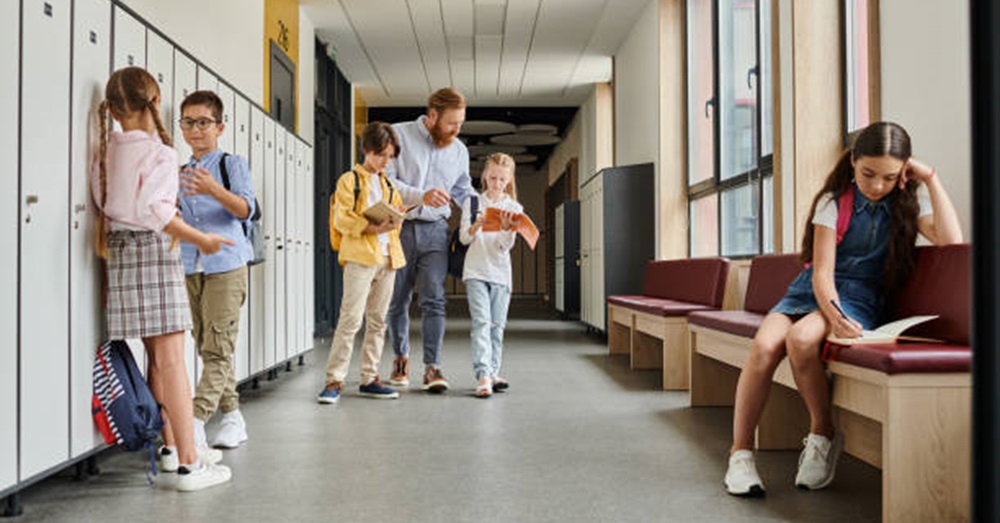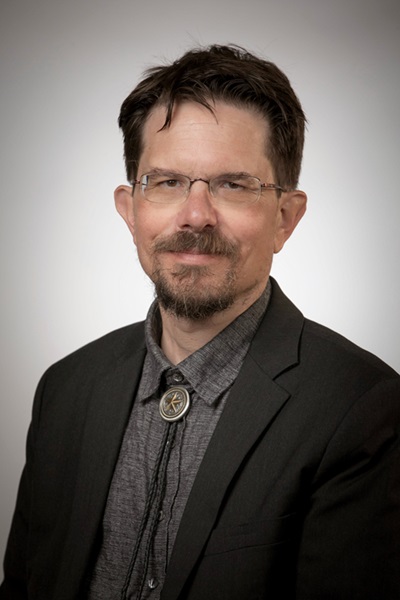A Call for Change: Addressing the Invisible Workload of School-Based SLPs

Tobias Kroll, Ph.D., CCC-SLP, an Associate Professor in the Department of Speech, Language and Hearing Sciences, recognized that school-based speech-language pathologists are facing unique challenges within the field. So, along with his colleagues, Phương Liên Palafox and Makinna Morgan (then a graduate SLP student), they decided to take a closer look at this feeling of overwhelm that these SLPs are facing.
“It’s been an open secret for more than a decade that school-based SLPs aren’t doing great,” Kroll said. “They typically have too many kids on their caseloads, too much paperwork, and sometimes not even a room to work in.”
To get deeper insights on this, Kroll and his colleagues conducted a qualitative study with two focus groups—one with elementary SLPs and another with secondary school SLPs. The research questions centered on advocacy: How do clinicians advocate for themselves? Do they feel confident and safe doing so? Do they know how? The assumption was that SLPs simply weren’t speaking up enough for what they needed.
The results told a different story. SLPs are indeed advocating— persistently and adamantly—but with little to no success. “They’re constantly working to make their lives better for their students, but they’re not getting anywhere,” Kroll explained.
Barriers to Progress
Lack of Understanding
One of the biggest challenges SLPs reported was that others often don’t fully understand what they do. Teachers sometimes assume their work is less demanding because it involves fewer students. Parents frequently hold unrealistic expectations, while administrators overlook the complexity of their responsibilities.
Reporting Structures
Another barrier came from how SLPs are supervised. While they are often hired by professionals in their field, their day-to-day supervisors are usually principals or special education directors who may not grasp the scope of their role. In contrast, participants who had SLPs as supervisors described more supportive experiences.
Professional Culture
Finally, the culture of the profession itself played a role. “We have high standards, we’re perfectionists, and we don’t like asking for help,” Kroll said. “That’s not just a stereotype—our participants said it is true.” Many SLPs work in isolation, sometimes serving multiple schools on their own. Without peer support, it is difficult to share the workload or advocate collectively. When peers did band together, however, they were able to push for some positive changes.
Top-Down Transformation

While small changes are possible at the local level, the study concluded that meaningful reform must come from the top. Kroll calls on the American Speech-Language-Hearing Association to take a stronger stance in support of its members. “This can’t be addressed by individual clinicians or even groups of clinicians,” he said. “It requires a top-down response.”
The stakes are significant. About 53% of speech-language pathologists work in early intervention, preschool and K-12 settings, meaning the majority of the profession may be directly affected by these conditions. For them, the invisible workload is not just a personal burden—it’s a systemic issue that makes it harder to focus on what matters most: making a meaningful difference in the lives of students.
To read the full study, click here.
Related Stories
Celebrating Veterans: TTUHSC’s General Martin Clay’s Legacy of Service and Leadership
From his initial enlistment in the Army National Guard 36 years ago to his leadership in military and civilian health care management roles, Major General Martin Clay’s career has been shaped by adaptability, mission focus and service to others.
Texas Tech University Health Sciences Center School of Nursing Named Best Accelerated Bachelor of Science in Nursing Program in Texas
The TTUHSC School of Nursing Accelerated Bachelor of Science in Nursing (BSN) program has been ranked the No. 1 accelerated nursing program in Texas by RegisteredNursing.org.
TTUHSC Names New Regional Dean for the School of Nursing
Louise Rice, DNP, RN, has been named regional dean of the TTUHSC School of Nursing on the Amarillo campus.
Recent Stories
National Academy of Inventors Names TTUHSC Faculty Senior Members
The National Academy of Inventors (NAI) has designated two current and one former TTUHSC faculty researchers as Senior Members.
The John Wayne Cancer Foundation Surgical Oncology Fellowship Program at Texas Tech University Health Sciences Center Announced
TTUHSC is collaborating with the John Wayne Cancer Foundation and has established the Big Cure Endowment, which supports the university’s efforts to reduce cancer incidence and increase survivability of people in rural and underserved areas.
TTUHSC Receives $1 Million Gift from Amarillo National Bank to Expand and Enhance Pediatric Care in the Panhandle
TTUHSC School of Medicine leaders accepted a $1 million philanthropic gift from Amarillo National Bank on Tuesday (Feb. 10), marking a transformational investment in pediatric care for the Texas Panhandle.
